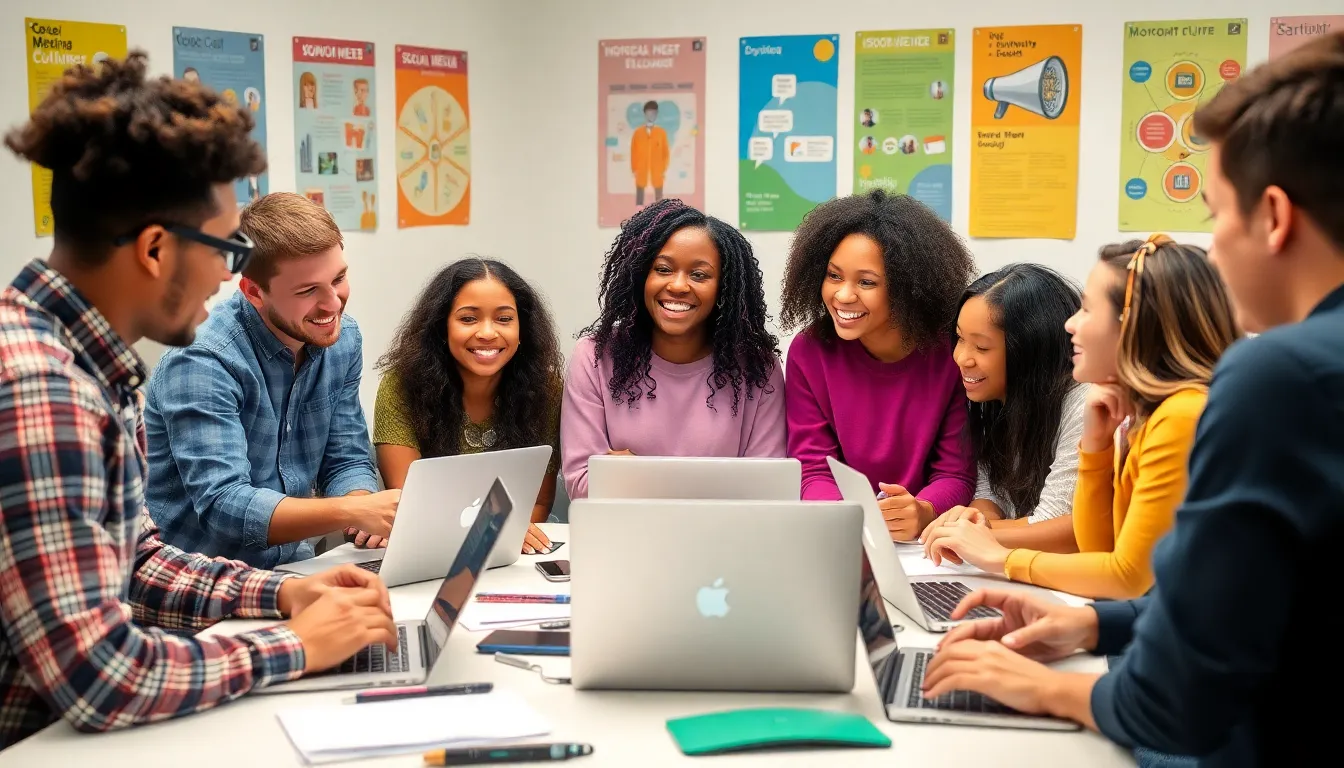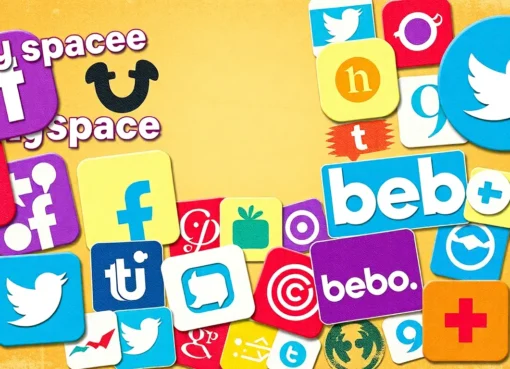Social Media Literacy: Mastering Skills for a Safer, Smarter Online Presence

In a world where scrolling through feeds is as common as breathing, social media literacy has become the secret sauce for navigating the digital jungle. It’s not just about knowing how to post a selfie or share a meme; it’s about understanding the nuances of online communication and the impact it has on our lives. With memes flying faster than a cat video can go viral, being savvy with social media isn’t just a nice-to-have—it’s essential.
Social Media Literacy
Social media literacy encompasses the skills and knowledge necessary to navigate online platforms effectively. Understanding how to analyze, create, and share content is vital in today’s interconnected world.
Definition of Social Media Literacy
Social media literacy refers to the ability to critically engage with social media content. This includes skills like evaluating sources, recognizing misinformation, and understanding the impact of one’s digital footprint. Users build awareness of different communication styles and their consequences. Understanding privacy settings helps protect personal information from misuse. Moreover, the capacity to connect with diverse perspectives enhances online discourse.
Importance in Today’s Digital Age
The significance of social media literacy in the digital age cannot be overstated. Navigating the vast amount of information available online requires discernment and critical thinking. Users equipped with these skills can effectively filter content and engage constructively. Misinformation can lead to harmful consequences, so identifying credible sources is essential. Besides facilitating constructive conversations, social media literacy empowers individuals to participate in digital citizenship actively. Engaging with online communities also fosters personal and professional relationships, reinforcing the importance of these skills.
Components of Social Media Literacy

Social media literacy comprises various skills essential for navigating digital platforms effectively. Each component plays a vital role in enhancing online engagement and discourse.
Critical Thinking Skills
Critical thinking skills enable individuals to assess the reliability of information encountered on social media. Evaluating sources is crucial; users must discern credible content from misinformation. Recognizing bias in different perspectives enhances the ability to engage in constructive conversations. Applying successful analytical strategies facilitates a deeper understanding of various viewpoints. Users can develop informed opinions by questioning the intent behind messages shared online.
Digital Communication Skills
Digital communication skills involve both creating and sharing content responsibly. Crafting clear messages captures audience attention; concise language fosters understanding. Recognizing the nuances of varying platforms aids in tailoring content effectively. Engaging with diverse audiences requires empathy and respect, promoting positive interactions. Mastering etiquette in online discussions helps establish meaningful connections. As a result, improved communication contributes to successful digital citizenship and collaboration.
Challenges in Developing Social Media Literacy
Developing social media literacy faces several significant challenges. Understanding these obstacles is vital for fostering effective use of social media platforms.
Misinformation and Fake News
Misinformation spreads rapidly across platforms. Social media users often encounter false information disguised as credible content. Distinguishing reliable sources from misleading ones proves difficult, leading to confusion and misinformed beliefs. Critical thinking skills play a key role in identifying bias and evaluating information rigorously. Many individuals lack the necessary tools to effectively combat misinformation, amplifying the risk of sharing unverified content. Strengthening social media literacy involves teaching users to question sources and seek confirmation before engaging.
Privacy and Security Concerns
Privacy and security pose significant challenges within social media literacy. Users often share personal information without understanding the implications. Many social media platforms have complex privacy settings, making it hard for users to safeguard their data. Ignorance of these settings increases vulnerability to cyber threats. Raising awareness about privacy practices empowers individuals to manage their digital footprints. Emphasizing the importance of security encourages responsible sharing and cautious engagement with online content. Promoting knowledge of privacy controls assists individuals in navigating these concerns more effectively.
Strategies to Enhance Social Media Literacy
Enhancing social media literacy involves intentional efforts through various strategies. Effective approaches include educational initiatives and accessible resources for learners and educators.
Educational Programs and Workshops
Institutions and organizations should implement comprehensive educational programs and workshops. Such initiatives can focus on critical thinking, digital communication, and privacy awareness. These programs often engage participants with interactive activities, real-world scenarios, and case studies. Professionals in the field, such as educators and digital literacy advocates, typically lead these sessions. Regular workshops can also adapt to current trends, ensuring relevance. Participants gain practical skills to navigate social media thoughtfully and responsibly.
Resources for Individuals and Educators
Numerous resources exist to support both individuals and educators in developing social media literacy. Online platforms offer free courses, articles, and toolkits focused on critical analysis of social media content. Websites like Media Literacy Now and Common Sense Education provide curated resources and curricula aimed at diverse age groups. Educators can also utilize lesson plans that foster meaningful discussions about online behavior and digital citizenship. Accessing these resources allows users to enhance their understanding and adapt their digital engagement habits.
Conclusion
Social media literacy is essential in navigating today’s complex digital landscape. By developing critical thinking and digital communication skills, individuals can engage more meaningfully online. Understanding the nuances of online interactions fosters constructive conversations and informed opinions.
As misinformation and privacy concerns continue to rise, the importance of mastering these skills cannot be overstated. Engaging with diverse perspectives and utilizing available resources can empower users to manage their digital footprints effectively. With intentional efforts and educational initiatives, everyone can enhance their social media literacy and contribute positively to the online community.



